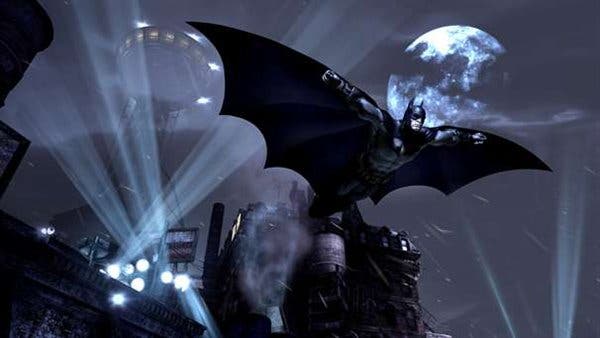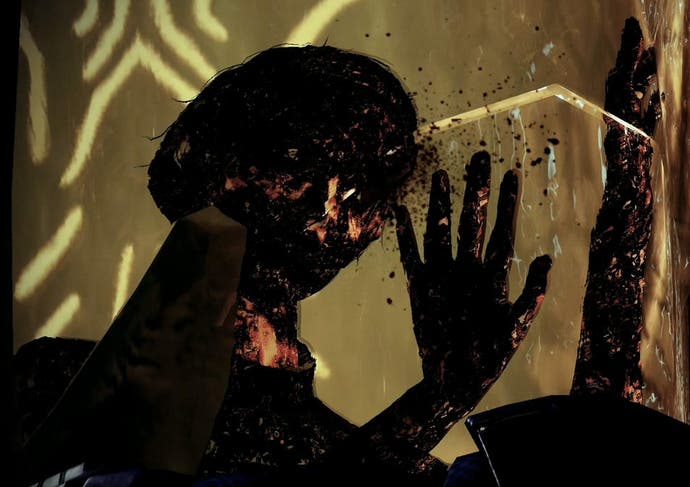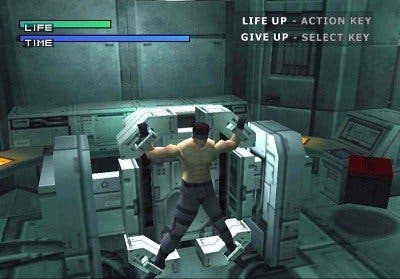Saturday Soapbox: Failure is Not an Option
The consequences of not having enough consequences.
"Batman must save Gotham," says everyone's favorite butler/surgeon/IT guy Alfred during the third act of Batman: Arkham City. He's not kidding. If I allow Bats to fail at rescuing even one of serial killer Victor Szasz's hostages it's off to the game-over screen. Retry or quit, there is no fail.
But why not? I understand it would spoil Rocksteady's authorial intent if I were to say, cut the rope suspending the bipolar mob boss Two Face over a vat of acid. He's a main character in a licensed game. Killing him now would not only be totally against Batman's ridiculous moral code, it would also mess up any plans the developers might have to include him in the inevitable Arkham 3 (Arkham County, anyone?)
Szasz's victims, however, aren't integral to the plot. Lacking even names, they're only notable for what they represent; innocent civilians. Wouldn't some of them dying make us feel remorse and resent Mr. Szasz even more? It's not like other villains don't frequently murder people both off and on screen in that game. Why should this be any different?
This rigid adherence to positive outcomes felt especially jarring coming hot off the heels of Dark Souls, wherein killing an NPC renders them dead for the rest of the game. Often they'll hold a spell that can't be found elsewhere, so if you make a blunder be prepared to live with it.

You'll rarely want to murder NPCs in Dark Souls, but the point is you can. There are consequences to every decision you make -- even if it's an accident and you mistakenly hit a friendly character (something that can happen all too easily by nudging the PS3's protruding shoulder buttons). Unlike other open world games where you can slay important NPCs like Skyrim or Fallout, Dark Souls only allots one save file per character and frequently overwrites your progress. Such unforgiving design encourages you to play for keeps, rather than attack every NPC you come across just to see if they react.
Though Arkham City and Dark Souls are two very different types of games with one following a structured narrative while the other is predicated on crafting your own tale, ramifications of this sort aren't exclusive to the latter.
The first Metal Gear Solid is a linear, story-heavy title, but there's a point where your actions drastically affect the outcome. Midway through the game you get captured and have to rapidly mash a button to withstand torture. If your health gets too low you can submit (as I did) which results in your quasi-romantic interest, Meryl, getting killed.
Dying here yields no continues, and it can be a long way back to the last save point. While she's brought back in Metal Gear Solid 4 (the ending where she survives became canon), that wasn't until over a decade later, so for all intents and purposes your experience changes depending on your performance during that solitary scene.

A more recent story-based stealth adventure with permanent consequences was Deus Ex: Human Revolution, wherein I messed up on the first mission by relying on the sort of safety nets inherent in other games. Early on in Human Revolution you're told to meet with your boss who will fill you in on an ongoing hostage situation. Since this is the beginning of the game, it was my natural reaction to wander around and talk to everyone. The hostages? "They'll be okay," I thought.
Even when my boss told me to hurry up, I assumed it was an empty threat. Just a voice in my ear nudging me in the right direction as Navi did all those years ago in Ocarina of Time. In that game I spent countless hours helping distraught townsfolk recover their lost chickens and dogs and the world didn't end. I figured the same would be true here while I caught up with the locals.
Upon arriving at the crime scene I was berated by local law enforcement for taking too long. They told me the hostages were dead. It was my fault. I'd been playing Human Revolution like a videogame, not like a top level security officer on a time sensitive mission. Mad at myself, I took out my aggression by throwing a cardboard box at the cops, which must've made me a threat as they didn't hesitate to gun me down. From that point on I'd learned my lesson; don't be a jackass.
I faced a similar consequence in Mass Effect 2 where I made a beeline through the main quest figuring I'd save the sidequests until just prior to the endgame. This did not work out as I'd hoped when a late story mission ended with most of the ship's crew getting kidnapped. Much like in Human Revolution, I assumed my crew would be okay while I spent the next 10 hours helping my squad sort out their family issues. While this helped me get chummy with my shipmates, it resulted in my crew getting turned into a puddle of goo upon our arrival. A pity as I'd grown quite attached to my awkwardly flirtatious yeoman, Kelly.

Such repercussions are refreshing because they encourage us to stop and consider the situation rather than rest on our gaming laurels and regurgitate the same principles that have dictated success and failure for decades. So why isn't this done more often?
It's partially due to prescribed narratives. A story can only stray so much before it stops resembling itself, and there are only so many different possibilities a developer can account for that can be burnt to a disc. But why aren't smaller decisions given the sort of weight they deserve?
One reason games steer away from permanent fail states is so players can see everything in a single playthrough. After completing all but one sidequest over the span of 50 hours in Fallout 3 it was heartbreaking to realize that the last of my major sidequests could not be completed because I'd killed the slave traders who gave it.

What I find more disconcerting is that by and large our industry is comprised of the same handful of pandering, ego-stroking fantasies. I can't tell you how many worlds I've saved, evil forces I've foiled, and people I've rescued. Maybe I'm just modest, but when NPCs thank me for saving their village, dog, or life I can't help but want to refer them to the dozen times I failed in the process.
By and large it feels like games have lured us into a false sense of security. Take your time, attack NPCs, pick the hilarious jerky dialogue option until you punch a reporter - these are the ways traditional game design has molded us into behaving, confident that there won't be any long-lasting negative effect. Inevitably you'll emerge victorious and be celebrated for being the best darned space marine/legendary hero/roguish adventurer there ever was.
But the truth is I'm tired of winning. I'd prefer the bittersweet taste of victory that acknowledges the losses contingent on my shortcomings. I've saved the day so many times that it doesn't even phase me anymore, but losing Meryl, my crew, or a group of hostages due to my feeble thumbs, brash behaviour, or compulsive curiosity is something that continues to haunt me. If games are going to mature, they need to hold us accountable for our failures in addition to our successes.




-3-31-23-screenshot.png?width=291&height=164&fit=crop&quality=80&format=jpg&auto=webp)




